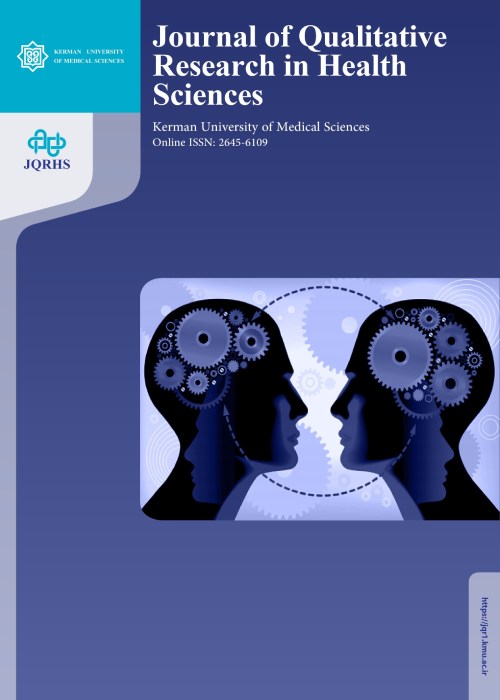Psychological Problems of Family Members of Brain-Dead Organ Donors: A Qualitative Study
Author(s):
Abstract:
Introduction
Organ donation is a very difficult decision for families. Families of brain-dead patients simultaneously face the difficult and damaging stages of experiencing and understanding brain death and the crisis of decision-making about organ donation. The understanding of individuals mentality and experiences is not possible with common quantitative approach; however, due to the importance this issue in nursing, understanding this concept seems necessary in order to provide appropriate care. Thus, in the present study, the qualitative study method was used for a deeper understanding of the psychological problems of brain dead patients family members.Method
This qualitative study was conducted through content analysis approach. The study participants were 13 relatives of 8 brain dead patients and were selected through purposive sampling method. Data were collected through in-depth, semi-structured interviews. Data collection was continued until data saturation, when no new codes and categories were found. All interviews were recorded and transcribed verbatim. Data were analyzed through the qualitative content analysis methods of Granheim and Lundman.Results
Through data analysis, 16 sub-categories were obtained and were categorized into the 4 themes of ambiguities, fear and doubt, dependency, and growth and development. Each of these concepts was divided into smaller indices.Conclusion
Results of the qualitative evaluation of the psychological problems of families of brain-dead organ donors showed that, because of families different experiences, lack of awareness, and harmful levels of anxiety and depression, it is necessary to appropriately support families in this crisis. The extracted concepts showed that all of the families required the medical teams sympathy and that they must be assisted in understanding any ambiguities and better understanding these conditions. Moreover, the incidence of inappropriate thoughts and confounding factors in the acceptance of this crisis must be reduced by strengthening the humanitarian morale of individuals.Keywords:
Language:
Persian
Published:
Journal of Qualitative Research in Health Sciences, Volume:5 Issue: 2, 2016
Pages:
148 to 157
magiran.com/p1701149
دانلود و مطالعه متن این مقاله با یکی از روشهای زیر امکان پذیر است:
اشتراک شخصی
با عضویت و پرداخت آنلاین حق اشتراک یکساله به مبلغ 1,390,000ريال میتوانید 70 عنوان مطلب دانلود کنید!
اشتراک سازمانی
به کتابخانه دانشگاه یا محل کار خود پیشنهاد کنید تا اشتراک سازمانی این پایگاه را برای دسترسی نامحدود همه کاربران به متن مطالب تهیه نمایند!
توجه!
- حق عضویت دریافتی صرف حمایت از نشریات عضو و نگهداری، تکمیل و توسعه مگیران میشود.
- پرداخت حق اشتراک و دانلود مقالات اجازه بازنشر آن در سایر رسانههای چاپی و دیجیتال را به کاربر نمیدهد.
In order to view content subscription is required
Personal subscription
Subscribe magiran.com for 70 € euros via PayPal and download 70 articles during a year.
Organization subscription
Please contact us to subscribe your university or library for unlimited access!


